10 Signs That You May Really Have A Drinking Problem
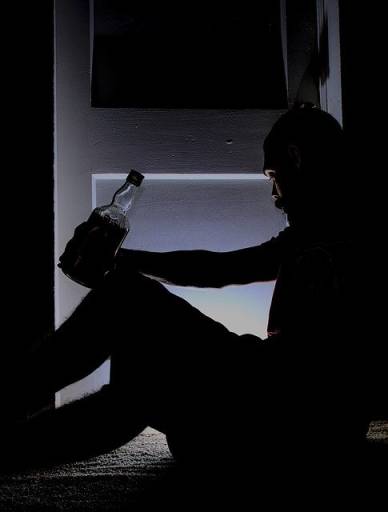
Do I really have a drinking problem?
There are some signs that may indicate if you have a problem with drinking. Here we have introduced the top ten signs to help guide you if you feel that you have a drinking problem, and how to address this.
#1 Alcohol tolerance increases
As we get older, our body and mind learns to handle drinking. Can you remember the first time that you consumed alcohol? If it were anything like me, the effects came thick and fast. Roll on a few more sessions and I could ‘take’ more.
As we our drinking levels increase, it takes more to get that same ‘buzz’ that you once got from consuming less. This is called alcohol tolerance. A high level of alcohol tolerance – you can drink a lot of alcohol and carry on drinking more – is often a sign that you have, or on the way to developing a drinking problem.
#2 It is on your mind where your next drink is coming from, even if you have a lot already available.
You could be sat at home with a bottle of wine next to you, and one or two in the cupboard or fridge, but you are still concerned about what you will do when you run out of alcohol. Personally, I can relate with this one.
I remember when I was drinking, I could go and purchase a crate or two of beer, not even started drinking and still have a worry in the back of my mind if I had purchased enough for the day/night. And even if I did, what would I do tomorrow, where would I get my beer and how much would be ‘enough’.
#3 Other people have shown concerns about your levels of drinking.
Often in our society, drinking is normalised. We drink for most social occasions or celebrations. Alcohol is a sneaky drug and can slip into our lives often without us realising that we are drinking to excess. An indication that we are drinking more than we should may come from others commenting on just how much you are drinking.
Over my life, I had been told by more people than I can remember that they were concerned about my levels of drinking. Friends, partners, family had told me at different points in my life that I may have a drinking problem. Looking back, I was told this waaay before I even really considered that I had a drinking problem.
Alcohol can be a delicate subject to approach for some people. For someone to actually speak up about your levels of drinking – for them to have the courage to even mention it, shows that they are concerned enough to tell you. If others around you are suggesting that you have a drinking problem, it would be wise to at least consider this as an indication that you do really have a problem with drinking.
#4 Experiencing temporary blackouts or short-term memory loss.
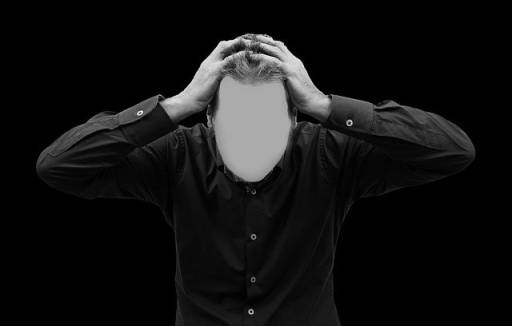
Some people are more susceptible to blackouts than other people, this is a fact. Alcohol affects pathways to your brain that move your memories from short-term to long-term, and some people who drink heavily may lose memories of what happened the night before, experiencing amnesia.
Although blacking out is a common experience, not everyone who drinks heavy will experience blackouts or memory loss.
Drinking to blackout does not mean that ‘this person has a problem with drinking’ alone, but it does show that that person has drank more alcohol than their body can process at that time.
If someone does experience regular blackouts, the fact that you are blacking out regularly does indicate that you have an alcohol use disorder as you are regularly drinking enough to experience blackouts.
How can you tell if someone is having a blackout? If you are in the company who has consumed too much alcohol, are you able to tell if they are going to remember being there right now, or will this memory (and maybe the rest of the evening) be wiped out from their brain?
Often a person experiencing a black out will –
- They have drunk a large about of alcohol in a short space of time
- Repeat themselves regularly throughout a conversation
- Struggle to follow a linear conversation
- They are easily distracted
- They are acting out of character, or potentially displaying dangerous behaviour that otherwise they would not do.
What should you do if you are experiencing blackouts?
I advised anyone experiencing blackouts to discuss with a medical professional/GP. The reasons could well be due to drinking too much, in which case a medical intervention may or may not be needed. There are also physical reasons for blackouts that may need to be eliminated, epilepsy for example, or a reaction to other medication. For whatever reason, if someone is experiencing blackouts then a visit to the doctors is highly recommended.
#5 Mood swings
When we drink beyond our body and mind’s ability to drink, this can often affect our mood state, and with this we can become irrational in our mood.
Quite often, when we start drinking, we are looking at ways to actually improve our mood.
Mood swings are when a person’s mood change is sudden and often extreme, from relaxed and seemingly happy to intense anger or upset.
Mood swings can be a perfectly natural reaction to a situation. For example, sudden, unexpected bad news can make a person’s mood deteriorate rapidly. The same can be said for someone to become elated. Extremely good news can make someone very happy – this is a normal reaction. Also, a person may suffer from a mood disorder, and this can cause mood to change quite rapidly. In these cases, there are organic, rational reasons for this.

Drinking alcohol regularly and to the extreme can also cause mood swings (as can abuse of other psychoactive drugs. Drinking in high amounts can affect the chemistry in your brain, leaving a person with an increased chance of displaying mood swings.
Mood swings are evident in the fact that the person can be happy one moment and quickly change to raged by given situations. As said earlier, this can happen within the norms of life, but someone who is drinking regularly has an increased risk of developing regular mood swings, indicating that they may have a problem with drinking.
#6 Alcohol cravings.
Alcohol cravings differ from person to person. A craving for a drink could be triggered by a certain situation like meeting up with friends. They could happen at different times of days, or depending on an individual’s surroundings.
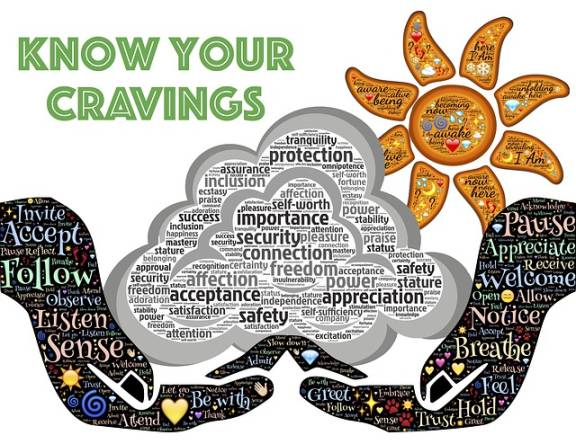
My personal triggers were always around routine – time to be more specific. My trigger was initially the evening times, then it turned into whenever I finished work, regardless of time. Looking back, in my 20s, I related having a few beers to establish that my day’s commitments were done. Once I had a drink, I had officially finished work and did not have to go anywhere, drive anywhere or basically do anything except have a drink.
This was fine with me initially and I certainly did not feel that I had a drinking problem – I was entitled to have a beer after doing whatever it was that was expected of me. This was in the early days. Then it turned to days off work – I had nothing that I had to do, and the quicker that I had a beer it meant that I COULD not be expected to do anything else, as I had had a drink.
This was in my early 20s. Roll on to my 30s and it turned into morning times on days off, or through the night continuing to drink as I had no commitments the next day.
When I went back to a ‘normal’ 9-5 job, the cravings for me to have a beer as soon as I finished were, in my mind, unbearable. I would clock off and drive straight to the off-license, buying enough for the night and then some more just in case I ran out.
Alcohol is a drug and is classed as a depressant. When we drink, most people drink for a pleasant effect or stimulation. If we drink more than the brain can take, the drinker then experiences the depressant effect that alcohol has.
The positive news is that cravings can be managed and minimised through learning your own triggers, and making a shift in your mindset. This can be achieved through self-education, or many turn to therapy to help them through this phase.
#7 Losing interest in other activities
As time goes by, you may find that you have stopped with some of your hobbies and interests. You may find that you are seeing friends less, or are losing the ‘fun factor’ in activities that you used to thrive on – these can be tell tale signs that you have a drinking problem.
Drink might start to become more of a priority than attending the gym, something that maybe you have done your entire life. Or coupled with fluctuating mood, you might find it harder to hang around with people who you have normally enjoyed the company of – now finding their company irritating or annoying.
Often, if you talk to anyone long-term drinkers they will tell you of hobbies that they ‘used to love doing’, but these were in days of old in their lives.
One positive that I have found in becoming teetotal, I have picked up many of my hobbies that I have long-forgotten and really feel that I have regained my life.
#8 Experiencing Withdrawal
When we drink alcohol – we need to remember that it is a very strong drug and has dramatic impacts on both your body and your mind. If a person drinks to excess, they may experience alcohol withdrawals.
Here is a list of some common symptoms of alcohol withdrawal
- Depression
- Tremors
- Nausea
- Sweating
- High Blood Pressure
- Anxiety
- Insomnia
- Irritability
We have written a more thorough blog about what alcohol withdrawals are here. To keep it concise – if you are experiencing alcohol withdrawals, then this quite a solid sign that may be experiencing issues with alcohol
#9 Physical problems
When I was at my height of drinking – around two decades of hitting it hard – I had many physical problems. Aside from looking like absolute shit (alcohol face) that really could not be hidden, there were more. I had problems going to the toilet (with fear of getting too graphic, going for a number two was NOT a pleasant experience, painful at times). Pains in my side were a regular, daily occurrence. I always had a stock of antacid tablets due to heartburn. Eating was often non-existent. Numbness in fingers and toes, a regular in my daily life. These are to name a few, and also these are only my symptoms.
There are lists of physical problems that can arise through alcohol abuse, least of all a myriad of cancers that are caused by alcohol abuse. And death. Let’s not forget death.
There are also the less obvious alcohol-associated physical problems – the ones due to ‘accidents’ People falling over and hurting themselves, violent encounters due to drunkenness.
Alcohol is a bad thing for your overall physical health.
#10 Difficulty stopping
“So you don’t believe you have a drinking problem? Well, try stopping then” – this was said to me on more than one occasion in my life before I actually felt that I did have a drinking problem. Thing is, I could not stop. The cravings, the triggers to drink were just strong. That strong that they were almost second nature and I did not even look at them as triggers or cravings. I simply wanted to/needed to have a drink. The very definition of a craving. But, could I see the woods for the trees? Did I have a drink problem? No, absolutely not. I just wanted it, even though if I read through all of the signs, I still felt that I was bulletproof and just going along with my life.
If you are struggling to be without alcohol in your life, or see your life without it involved in some way, this could very well be an indication that you have a problem with alcohol.
If you are struggling with your relationship with alcohol, you can use our tools to help reduce or even stop alcohol, or sign up for our 9 steps to give yourself the best chance of sobriety.
The Alcohol Off Switch has also created a Facebook Alcohol Support Group that is private and free for anyone to join.


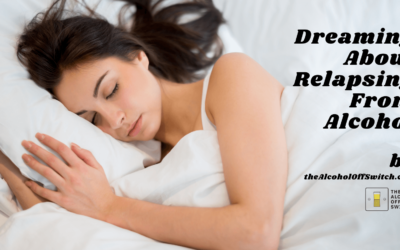
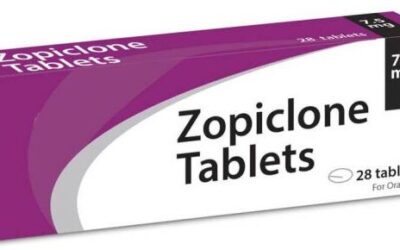
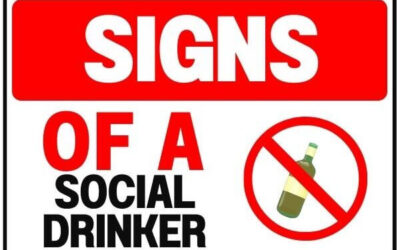
0 Comments